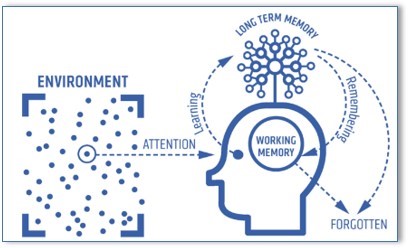Curriculum Overview
At Orchard Academy our ethos and values underpin all that we do. We believe that together we will achieve and reach our goals by showing respect, making the right choices, working hard, being a confident learner, showing perseverance and being aspirational. Each day we are ready, respectful and safe.
Every school in the East Midlands Academy Trust (EMAT) is committed to providing the highest standard of education so that all pupils are supported to be the best that can be, thought inspiration, inclusion, innovation, integrity and impact. EMAT defines the curriculum as the totality of a child’s experience of education from the Early Years to Post 16, which comprises:.
- subject knowledge explicitly taught
- exposure to cultural capital which will support success in adult life
- a high standard of teaching and learning
- assessment and feedback regarding progress
- extra-curricular activities
- teaching of metacognitive skills and techniques to aid learning
- development of broader employability skills and personal qualities
Orchard Academy is a three-form entry junior school in the centre of Milton Keynes, with a social communication department onsite. We pride ourselves on being a successful, nurturing and inclusive school at the heart of our community, where we all belong.
The community that we serve is diverse, with our children entering the school from many different ethnic and social backgrounds. Many of our pupils have English as an additional language, with a diverse range of ethnic groups represented. Many in-year admissions occur due to new arrivals to the country or through word of mouth promoting our provision for our social communication department.
At Orchard Academy our social communication department within school means that we can meet the needs of the individual children with EHCPs, whilst providing the opportunity for them to access mainstream provision where appropriate.
As a result of identifying needs within our community, we have additional pastoral members of staff who provide social, emotional and mental health support to our children and their families within the community.
The aim of the curriculum at Orchard Academy is to provide an ambitious, motivating and enriched curriculum that meets the needs of all children, allowing them to explore and understand the world they live in. We provide opportunities for children to develop as independent and confident learners with high aspirations, empowering every child to become a responsible and successful citizen in the local and global community, becoming life-long learners.
Our curriculum incorporates the key knowledge, skills and understanding set out in the National Curriculum and other experiences and opportunities which best meet the learning and developmental needs of the children in our school, equipping them with high levels of literacy and numeracy and critical and creative thinking skills essential for now and in the future. The curriculum is carefully planned with high expectations to ensure clear progression within all curriculum subjects and aims to support children in gaining a deeper understanding of their learning. Our children are provided with a firm grounding in core skills including, reading, writing, spelling, grammar and mathematics.
We recognise the importance of children becoming confident, fluent early readers and fostering a love of books. By establishing an appreciation and love of reading, pupils develop knowledge about themselves and the world in which they live and to gaining access to a broad curriculum. Read Write Inc is well established in school as a systematic approach to teaching phonics and early reading.
We understand the importance of enrichment opportunities and experiences. Children have the opportunity to learn both inside and out of the classroom, through themed days, whole school activities and opportunities within and out of school which enrich learning. We are a creative school and promote this across the curriculum.
A variety of after school clubs based on interests of our children and high-quality visits and visitors extend these opportunities further. Children have opportunities to share their learning with each other, their parents and carers and other learners through school-based performances, competitions and events involving other schools. We ensure by the time children leave Orchard Academy they are equipped with the knowledge and skills to continue to learn and grow independently in the next stage of their learning journey.
To find out more about our curriculum, please contact us.
Relationship and Sex Education
At Orchard Academy, we follow the Jigsaw curriculum for Relationship and Sex Education (RSE). Parents can find out more about our curriculum by clicking on the links and downloads on this website, or by contacting the school office.
Click here for more information on our RSE and PHSE curriculum.




